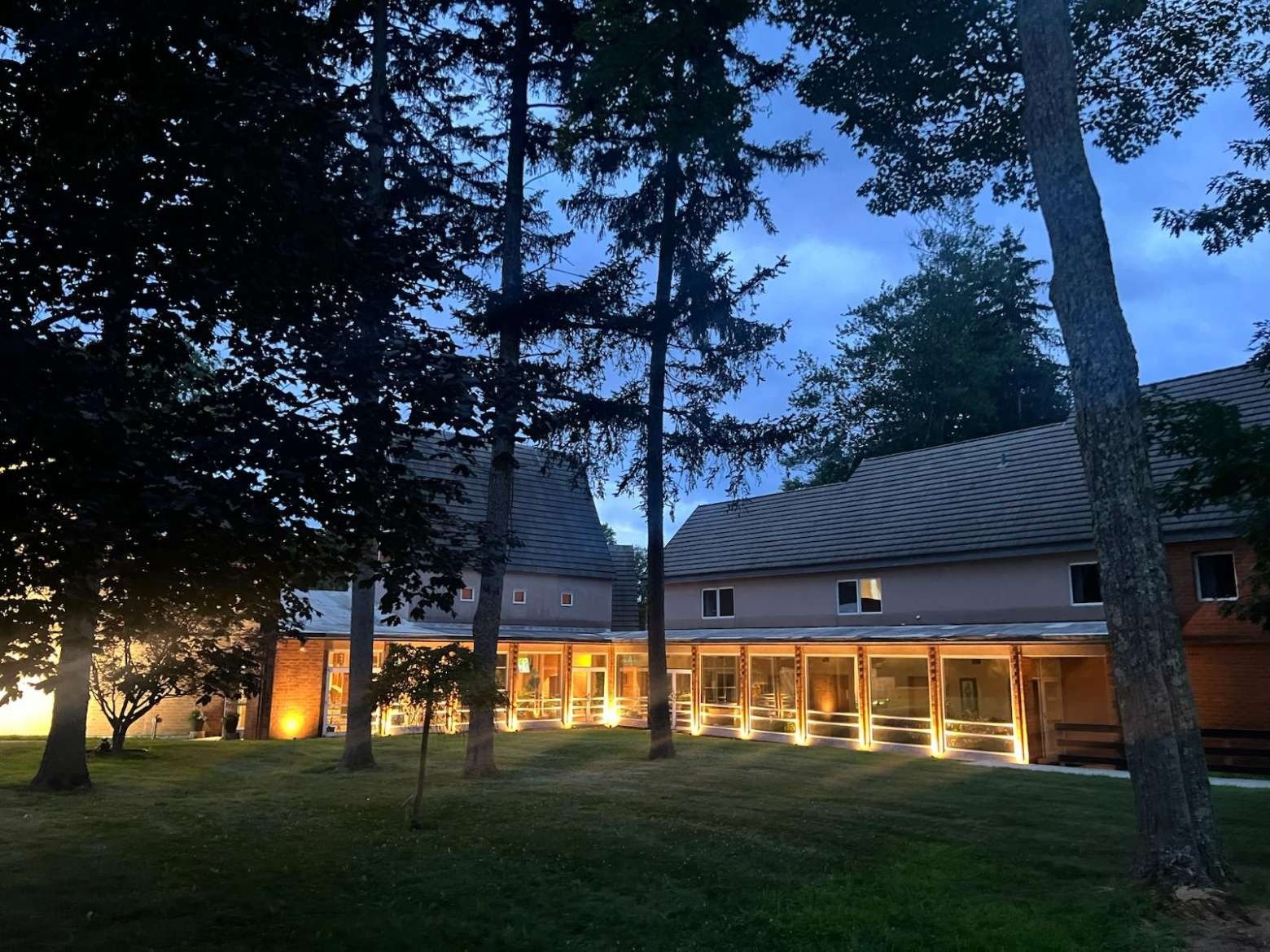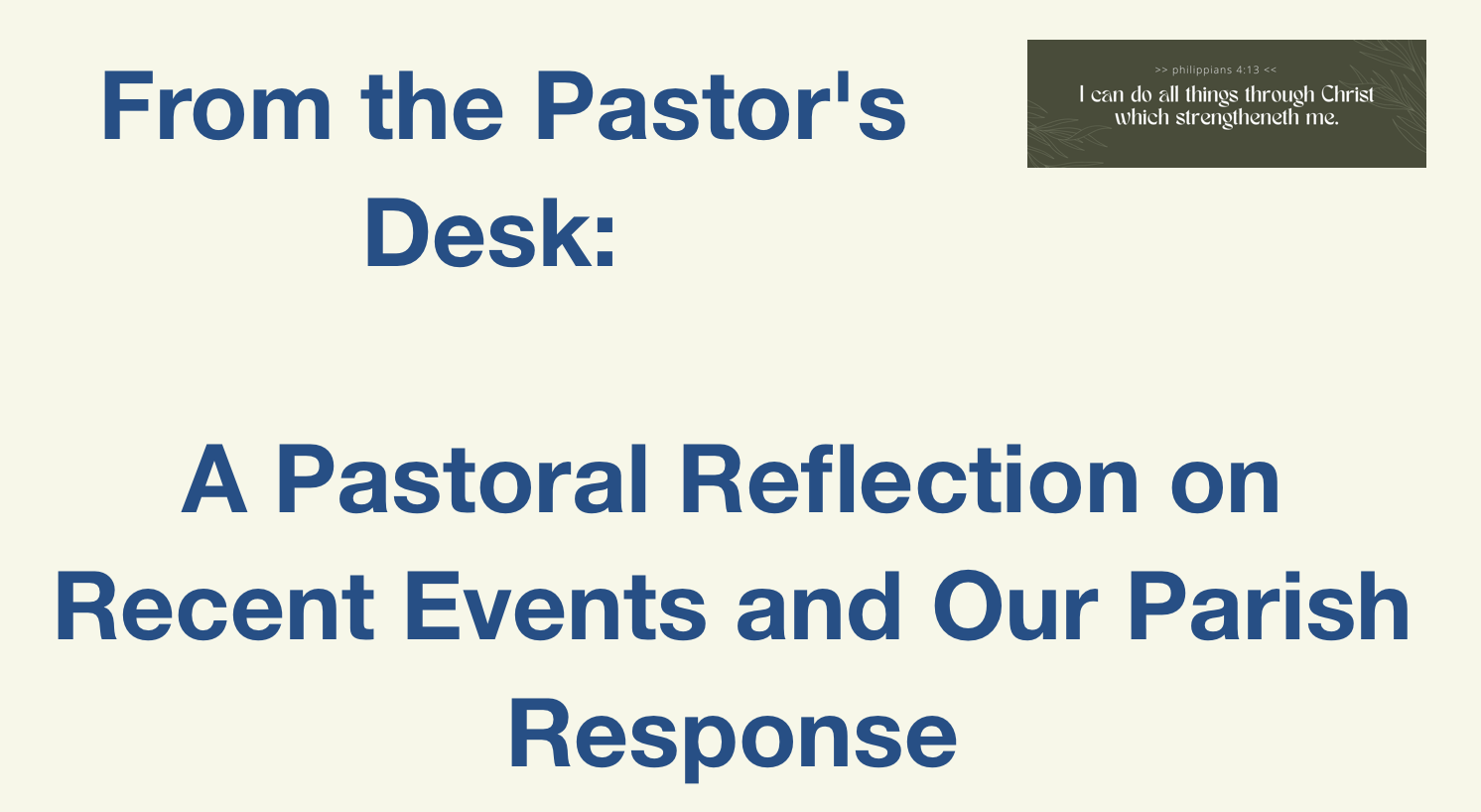From the Pastor's Desk
-
-


This tension has been felt here in our own parish family. On September 14, the Feast of the Exaltation of the Holy Cross, I spoke at two Masses (5 p.m. and 9 a.m.) about one of Kirk’s reflections on Mary. He had observed that Protestant communities often do not give Mary the attention she deserves, and he suggested that her witness could be an important model for women today. I shared those words, not to lift him up as a saint or a model of Christian life, but as a way of reflecting on Mary’s unique place in our faith.
At the same time, Cardinal Dolan also offered his own public reflection on Kirk, even comparing him to St. Paul. That statement, too, brought very emotional reactions. Some of our parishioners, upset by the comparison, called diocesan offices or left messages at our parish office to voice their disapproval. The strong feelings surrounding these different perspectives made it clear just how divided opinions can be when faith and public life meet in such a way.
The reactions in our parish were mixed and intense. Some parishioners felt that Kirk’s name should not have been quoted at all, given the controversy around many of his other views. Others, on the other hand, later expressed disappointment that the following weekend no mention of his death was made at all in our parish Masses. The silence, they felt, made them feel unseen in their grief.
These very different responses were not unique to us. When I spoke with other priests in our region, I learned that nearly every parish has faced the same mix of reactions. For some, silence felt like neglect. For others, speaking of him felt like endorsement. And pastors found themselves caught in the middle, trying to lead communities that are both grieving and divided.
This moment reveals something important about parish life. A pastor’s task is not only to care for the liturgy, the buildings, and the daily needs of the parish – it is also to stand with the community in difficult and sometimes messy moments. That often means hearing both admiration and criticism about the very same thing.
What can we learn from this? Perhaps that our calling as a parish is not first to agree on every opinion or public figure, but to seek together the deeper unity that comes from Christ. We are, as the Church often says, a “pilgrim people.” Along the way, we will encounter different voices and different responses, and these may stir both hope and discomfort. But in the end, our goal is to walk together toward salvation, supporting one another in faith.
I do not pretend to have the final answer to how every situation like this should be handled. My hope, rather, is that we can recognize moments like this as opportunities to reflect. In particular: How should a pastor respond to two groups who feel so differently – one hurt by silence, the other unsettled by mention? How can he speak or act in such a way that neither group feels ignored or excluded? These are not easy questions, but they are the very heart of pastoral leadership. And perhaps an even deeper question is this: how would you respond if you were in the same position, standing before a divided community?
I invite you to sit with these questions, to pray about them, and to speak with one another about them. If nothing else, may this moment remind us, that, what unites us is far greater than what divides us: our shared faith, our shared prayer, and our shared journey toward God.
May God continue to bless us all,
Fr. Slawek
-
-
